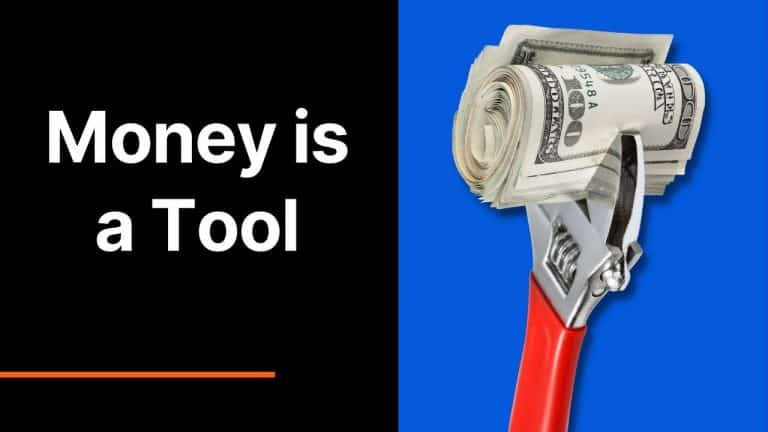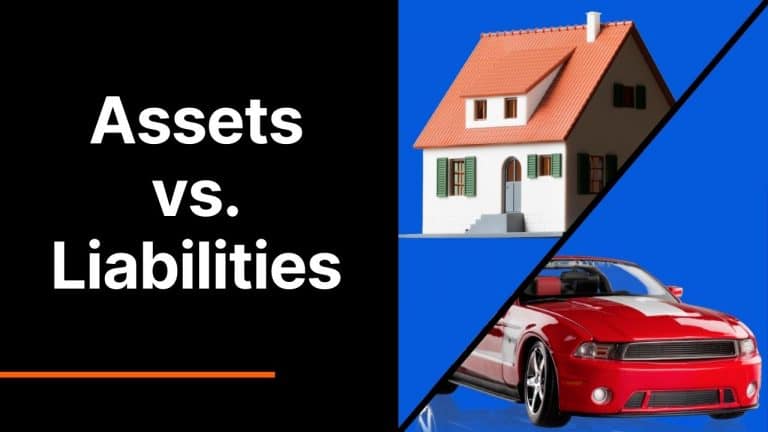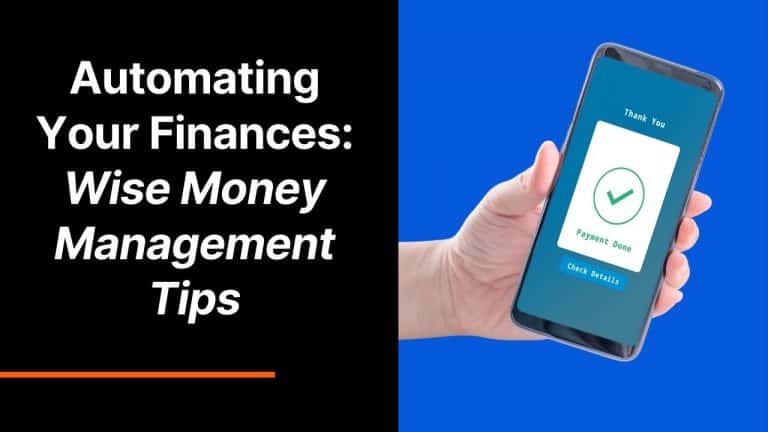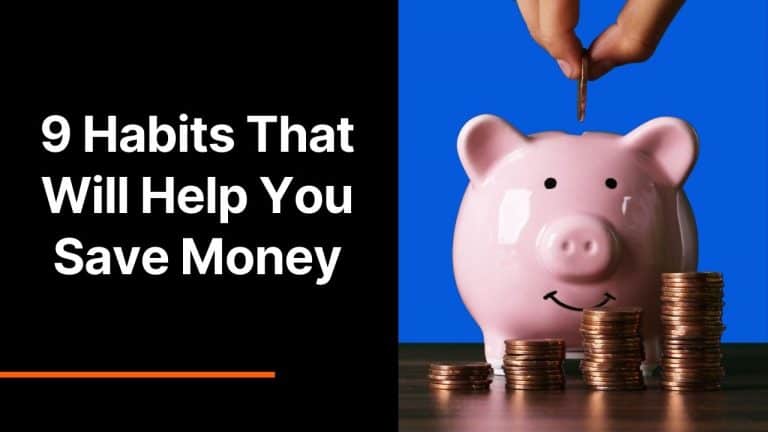How to Live Below Your Means: Proven and Effective Tips
Are you tired of living paycheck to paycheck?
Do you want to be able to afford the things you really want in life but don’t know how to make that happen?
Well, I have some good news for you. It’s possible to live below your means and still enjoy life. Living below your means is the fastest way to save money.
You do not need much to live an enjoyable life.
You don’t need to have the latest gadgets or spend a fortune on clothes to be happy. But you need to learn how to live within your means and enjoy the simple things in life.
I’ll show you how to do just that and make it work.
Plus, anyone with any
So, let’s make this your best year yet and learn how you can still enjoy life while saving more and spending less!
What is Living Below Your Means?
Living below your means is living a lifestyle that costs less than what you make.
It doesn’t mean you’re living in poverty or deprivation. You just don’t spend more money than you have each month.
So, if you make $60,000 a year and only spend $30,000, you’re living below your means. It’s a way for you to not only save more money but also stress less because you’re not living paycheck to paycheck.
People who live below their means tend to purchase smaller, more affordable homes and drive older, reliable cars. Nothing too expensive or flashy.
They’re frugal individuals who want a stable financial future.
Why You Should Live Below Your Means
Living well below your means has a lot of benefits.
For one, it can help you save money. If you’re not spending more than you have, you’ll have more money saved up for emergencies or important goals like retirement.
It can also reduce your stress levels.
You don’t have to worry about maintaining an expensive living standard or keeping up with the lifestyle and spending habits of friends if you’re spending below your means.
Spending less will allow you to live life on your terms: less stress, social pressure, and comparisons.
That’s not to say living below your means is for everybody. I mean, you might be fine living an extravagant lifestyle, but you should at least consider not spending more money than you have to once in a while.
Doing so will help you save for things you want and need. It can help you get out of debt, build your net worth, and invest in different assets.
When you’re not spending more than you earn, you have options. It will also likely help you to achieve financial freedom one day.
Benefits of Spending Less Than You Make
Not spending money you don’t have can provide many other benefits. Let’s look at a few of them.
Stronger Relationships
Financial stress in relationships and marriage can cause anxiety, tension, and unnecessary arguments.
When you are financially secure, your relationship with family members will be better off.
Sure, spending less than you make and all the money in the world won’t just fix whatever was causing problems before.
But when you and your partner have a bank account filled with cash, you’ll have a better relationship. You can enjoy life together with additional money and less stress about bills and debt.
Less Stress
We all know that shopping can be a therapeutic activity.
It can help with stress, anxiety, or depression at the moment but not if you’re living above your means! Spending more than you have will create unneeded stress in your life.
Life is more difficult when we overspend on clothes and accessories instead of sticking within our budget for essentials such as food and bills (or even just buying one new item).
Adding more bills and
Delayed Gratification
Practicing delayed gratification is a cheat code for living below your means.
Delayed gratification means you resist the temptation to spend money on things right away and instead save up to purchase them at a later date. Sure, putting off purchases can be difficult, but it’s worth it in the end.
For example, if you want to buy a new iPhone next month, put some money aside for a few weeks and purchase your new device when you have enough saved up.
Then, when you finally purchase the iPhone you’ve been setting aside money for, celebrate. You didn’t impulsively purchase something you didn’t need with money you didn’t have.
You also won’t have a bill or debt waiting for you a few weeks later because you didn’t purchase it with a high-interest credit card.
Reach Your Financial Security Goals
We all have goals.
Achieving those goals requires hard work and dedication. But achieving the financial goals you set for yourself is not always possible when there isn’t enough money coming in to make ends meet.
Financial success won’t happen if you always spend every penny of your monthly
Nope, not in this lifetime.
Financial stability and reaching long-term goals demand you live below your means. You have to spend less and cut back on monthly
More Flexibility in Your Financial Life
Spending less than you make is a good idea if you want more flexibility in life.
That includes moving to a new city or finding a new job if the one you have isn’t working out. If you live below your means and save money every month, there will be a good bit of money in the bank to “fall back on.”
For example, flexibility would enable you to take time off from work and find a new job. Or leave right away and spend more time looking for one instead of panicking because your wallet is empty and rent is due in two weeks.
It’s all about having options available to you when making decisions.
Saving money gives you the flexibility that makes it easier to cope with unexpected events and
Living Below Your Means Helps You Save Money
Living below your means is a great way to save money.
When you’re not spending all of your money on unnecessary things, you’ll have more to put towards important things, like your emergency fund,
That money you saved from living below your means can also be used to pay off debts, such as your credit card debt, car loans, and student loans.
How Living Below Your Means Will Make You Happier
When you have a lot of money saved up, living below your means can help you feel happier.
You’ll feel more joy in your day-to-day life because having enough money saved up is an enormous weight off of your shoulders.
It eliminates the stress of maintaining a living standard you can’t afford. Living well within your means can lead to more happiness as it gives you a sense of freedom.
Freedom from having to live paycheck to paycheck is a great way to make yourself happier.
The extra money you’ve saved up from living below your means can help you start living the life you want. Instead of living a life where the consumer markets and commercials you see on TV and social media tell you what to do.
Living below your means will also give you an enormous sense of satisfaction because it’s very freeing. You’ll sleep better at night knowing there’s enough money in the bank for emergencies and other things in life.
You don’t have to worry about the stressors associated with having too much debt on your credit cards and living above your means.
Your personal finances won’t be out of control.
How to Live Below Your Means
If you want to live life below your means, you need to focus on two things:
- Your Spending Habits
- Major Life
Expenses
That’s it.
All you have to do is spend less than you make and save or invest the difference while planning for any significant life
If you don’t have a plan in place, you’ll spend more than you want to or even realize.
Track Your Spending Habits on a Weekly or Monthly Basis
To live below your means, you need to pay attention and track your spending weekly or monthly.
It’s easy to use a budgeting app like Personal Capital, EveryDollar, and Mint to do this.
Tracking will help you identify where you’re spending the most money and make changes accordingly. Doing it is the most important personal financial habit you can establish other than paying cash when you spend.
Keeping an eye on your spending habits will give you the knowledge you need to modify your lifestyle. You might even be surprised at how much money you’re spending on unnecessary items.
By tracking your spending, you can cut back on these
I know it might sound boring and straightforward, but if you want to enjoy your life while spending less, the best place to start is by tracking your
We all have our little guilty pleasures. Like coffee every day or weekly shopping at Target and Amazon deliveries.
These things might not seem like much compared with other necessities such as rent and utilities, but they add up and will destroy any personal finance goals you have.
So start keeping track of everything you spend each month, whether in cash or digitally.
Reduce and Plan for Major Life Expenses
At some point in your life, you’ll have a HUGE life expense.
I’m talking cars, houses, home improvement projects, and unexpected life events like health problems.
While there are numerous savings strategies for these big purchases, the best way to spend less money is to plan early. By planning your significant
For example, if you know you need a new car five years from now because your current one won’t last much longer, consider purchasing a slightly used car and saving the difference.
If you plan for major life
Saving for significant purchases will also prevent you from being house poor, where your house is the only asset you have, and all or most of your money is going towards paying for the house and housing
Being house poor leads to a lack of savings and will stop you from fully funding your retirement or investment accounts.
Note: You can reduce your housing costs and monthly payments by paying a larger down payment upfront.
Focus on The Big Three
The three largest
Not only will your bank account thank you for it, but so will the future you. By reducing these
Housing
We touched on housing earlier, so if you’re spending too much on housing costs, it’s time to look at your budget and rent or mortgage agreement. You might be able to negotiate lower monthly payments with the landlord or bank.
You might consider buying a less expensive home and saving on property taxes. You could also try getting a roommate and ask them to split the rent or look into house hacking if you own.
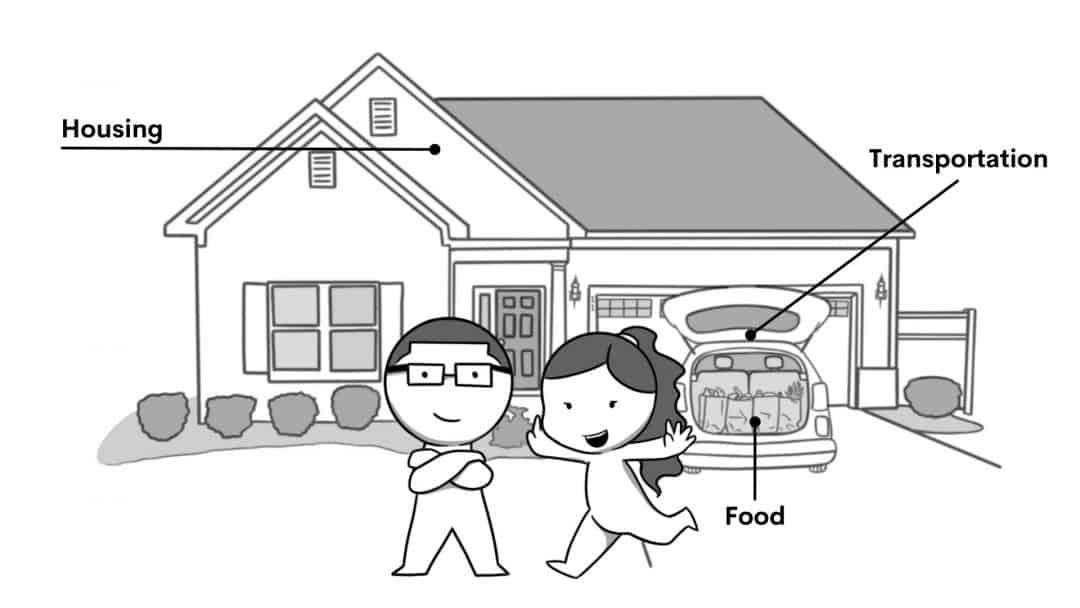
Food
It’s easy to overspend on food. But with a bit of planning, you can save some money and still have the food you need to eat for the week or month.
You can plan several meals to save money by prepping for the week. You can reduce your food waste by portioning out specific amounts of leftovers in the fridge into lunch containers to eat for work or school.
You can also save by not eating out as often and cooking more frequently at home. Shopping for food at discount retailers like Aldi or Costco can help significantly as well.
Transportation
You might be able to reduce your transportation
Having more than one vehicle creates a lot of unnecessary
Biking from place to place is another option.
And if you use public transportation, you might consider getting a monthly pass instead of paying for each ride.
Quick Tips on How to Spend Money and Live Below Your Means
- Create a budget and stick to it
- Avoid buying things you cannot afford or don’t need
- Cut back on unexpected
expenses - Save money every month
- Buy second hand whenever possible
- Don’t take on more debt than you need to
- Avoid bank fees and don’t take out a high-interest auto loan
- Do not rack up debt on credit cards for living
expenses or unnecessary items - Only spend money on things that bring you joy
Just avoid living above your means.
Commit to frugal living. The number one way to do that is to create a budget and stick to it every month.
Why You Should Focus on Your Essential Living Expenses
People living within their means try to live well below their means.
Living below your means is living a content life where all you need are the bare essentials like food, shelter, light, and water.
Focusing on living
If you save and cut back on your
Avoid Credit Card Debt When Trying to Live Within Your Means
Living below your means is hard because credit cards make it easy to spend money you don’t have.
Instead of living within your means, many use their credit cards for everyday purchases like gas, groceries, and clothes. Then pay the minimum payment when the bill arrives.
You’re sabotaging your financial goals every time you do this. Because of the high-interest rates on credit cards, they’re often a recipe for a lifetime of debt.
So don’t use your credit cards unless you’re prepared to pay the balance in full each month.
Using credit cards makes living well below your means more complex. When there is no physical cash to spend, you’re less likely to monitor your spending.
So pay cash instead of using credit cards whenever possible. Spending the money you have in your wallet makes it harder to spend more than you have in your checking or interest-bearing savings account.
It also stops you from having to pay interest on credit cards you can’t afford to pay off quickly. Credit card debt will keep you in debt longer than you need to be.
Living Below Your Means is The Key to Financial Freedom
There are a few reasons why living below your means is the key to achieving financial freedom.
The first reason is that it allows you to invest more money. If you’re not spending all of your money, you’ll have more of it to invest. If you’re able to invest money on a regular ongoing basis, year after year, you’ll build wealth at any rate of return.
You may not become a millionaire overnight, but $5,000 per year invested with a 10% return will turn into $1.5 million in 30 years.
But, if you’re spending all of your
The second reason living below your means is the key to reaching financial independence is it can make any job more enjoyable.
Even if we currently love our jobs, we do spend some time wishing for Friday or thinking about what we’ll do when we’re not working.
If you’re living below your means and
Come Friday; you won’t be thinking about how long until the weekend anymore. Instead, you’ll be thinking about how soon you can quit your job and do things you want to do with your time.
Finally, when you live below your means, you can retire early.
Most people don’t want to work a job they hate for 40 years and then retire at the age of 65, so they can FINALLY sit back, enjoy their favorite activities, and wait until they die.
Nope, you want to enjoy life no matter how long you live. And the earlier you can retire, the more years you’ll be able to enjoy it!
And if you’re living well below your means and
Every extra month of freedom gives you more time to pursue whatever activities you love to do.
12 Steps You Can Take if You Want to Live Below Your Means:
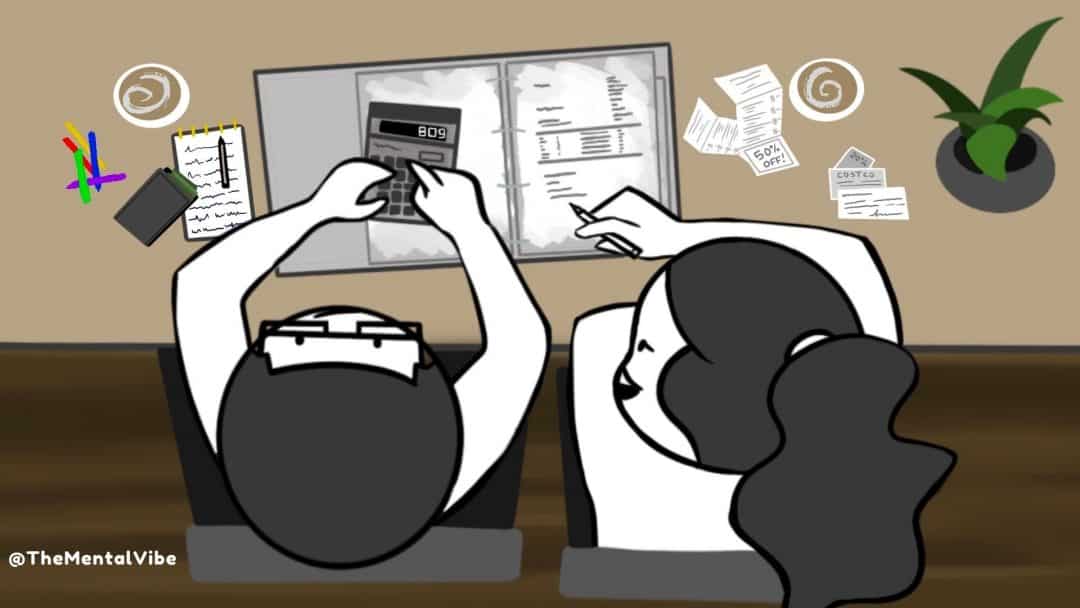
- Start living more frugally by making changes in your daily habits
- Use technology to track your spending
- Reduce spending on things that aren’t necessities
- Shop for secondhand items instead of buying new ones
- Create a budget and stick to it
- Save up for something you want to buy instead of charging them on credit
- Determine what’s important to you and spend your money on those things first
- Treat yourself occasionally, but don’t go overboard
- Avoid materialism by focusing on experiences instead of things
- Use coupons, ask for discounts, or find cheaper alternatives to costly items
- Live in a place you can afford
- Delay gratification and don’t buy anything new until you get paid
How to Enjoy Life While You Live Below Your Means
There is a belief that only rich people can live well.
Yet, in reality, you don’t need to be wealthy or famous to live below your means and still enjoy life.
Many of the best things in life are free. Yet our consumer culture tells us that in order to be happy, we need more and more stuff.
We don’t.
The truth is we can live with less stuff and enjoy life simultaneously. It requires a change in
That said, you will need to let go of misconceptions about what it means to be “rich.” Being rich doesn’t mean you have to spend a lot of money.
Rich can mean having close relationships with friends and family, enjoying hobbies, having interests, or traveling. It can also mean getting along well with your neighbors and having a firm grasp on what you want out of life.
Because whatever you find happiness in is what makes you wealthy. Wealth comes from within, not from things outside ourselves.
When you can be happy without buying anything, it means you truly “have it all,” and that’s the foundation of personal wealth.
Sure, it might sound crazy.
But you don’t need to spend all of your money, buy a brand new car, or take on debt to be happy.
Live Below Your Means in The Pursuit of Happyness
Living below your means is a great way to save money, but it’s also an excellent strategy for happiness.
It may seem counterintuitive at first, especially if you associate living well with spending more. But what people don’t realize is that the happiest moments in life are often not related to how much money someone has or spends.
When you live within your means and focus on essentials like shelter, food, clothing, and transportation
If this sounds good to you too, then it’s time to look at your lifestyle and see if there are any areas where you can live on less.

